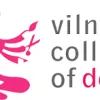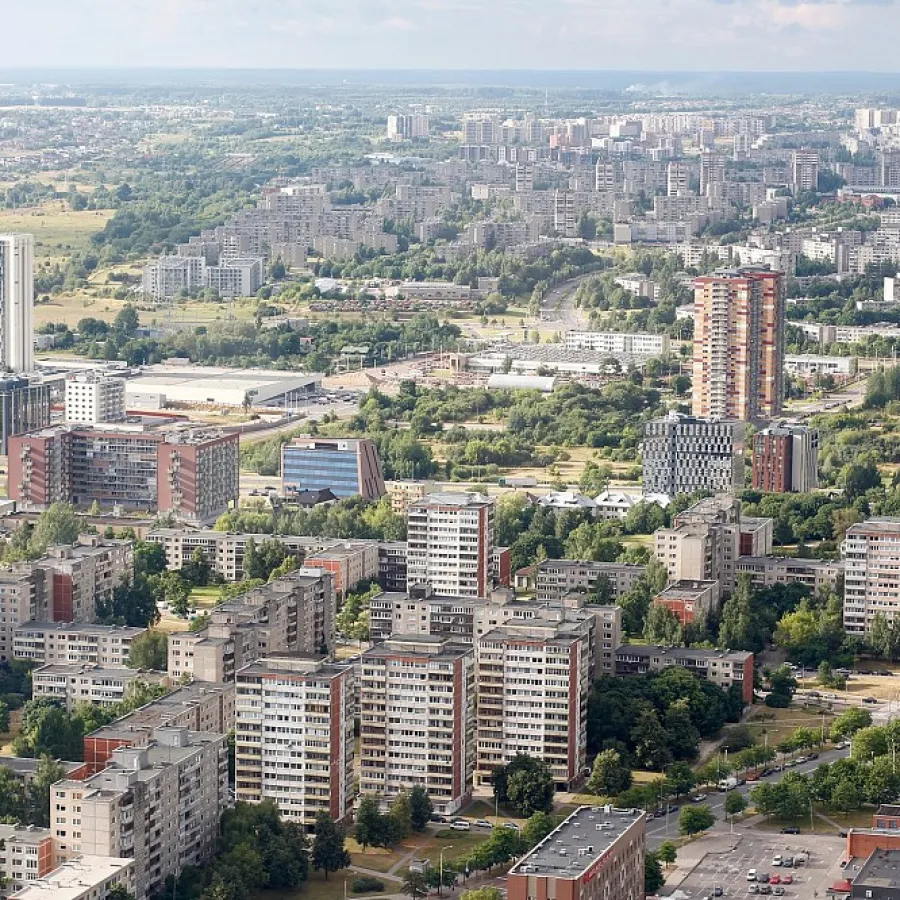Vilnius College of Design (VDK)


Vilnius College of Design (VDK)
The history of Vilnius College of Design began in 1997 when Giedrė Fledžinskienė High Art School training future clothing and theatrical make-up designers was established. G. Fledžinskienė, the founder of the school, is a long-time lecturer at Vilnius Academy of Arts, and an artist-designer. In 2005 the school was reorganized into a public institution and named Vilnius College of Design, providing higher education.
Description
The college is headed by the Director Aldis Fledžinskas. “We are here to offer quality art studies and modern training methods for creative, innovative people seeking self-expression to become the best professionals in their field. Modern academic environment, carefully selected lecturers, who are splendid professionals in their field, great attention to the development and renewal of the material supplies help to ensure the quality of the studies“, - states the Director of Vilnius College of Design.
Courses
B.Sc.Applied photography
Vilnius College of Design (VDK)
Lithuania, Lithuania
Attribute
High school / secondary education (or higher)
The entry qualification documents are accepted in the following languages: English.
Often you can get a suitable transcript from your school. If this is not the case, you will need official translations along with verified copies of the original.
You must take the original entry qualification documents when you finally attend university.
Applicants must upload education documents in their original language and translate them into English.
Diplomas and transcripts issued outside the EU must be legalized with a legalization stamp or Apostille.
You must take the original entry qualification documents when you finally attend university.
English
One of the next variants, if you have no any of these certificates you can pass University or Baltic Center Exams:
English
TOEFL IBT – at least score 72;
IELTS – at least score 5.5;
PTE General – at least level B2;
FCE – at least level B;
CPE – satisfactory pass;
CAE – satisfactory pass.
A relevant portfolio is required.
Application fee €200
CAREER OPPORTUNITIES
Commercial Photographer: Commercial photographers work with businesses, advertising agencies, and clients to create images for marketing campaigns, product catalogs, corporate branding, and other commercial purposes. They may specialize in areas such as product photography, fashion photography, food photography, or architectural photography.
Portrait Photographer: Portrait photographers specialize in capturing images of individuals or groups, including family portraits, graduation photos, professional headshots, and studio portraits. They may work in studios or on location, and they often collaborate with clients to achieve their desired aesthetic.
Wedding and Event Photographer: Wedding and event photographers capture special moments at weddings, parties, conferences, and other events. They are responsible for documenting the event, capturing candid shots, and creating lasting memories for clients.
Photojournalist: Photojournalists document news events, current affairs, and human interest stories through photography. They work for newspapers, magazines, wire services, and online publications, providing visual storytelling that accompanies written articles.
Fine Art Photographer: Fine art photographers create images for artistic expression and personal exploration. They may exhibit their work in galleries, museums, or online platforms, and they often explore themes such as landscape photography, abstract photography, conceptual photography, or social commentary.
Freelance Photographer: Freelance photographers work independently, taking on assignments and projects for various clients or publications. They have the flexibility to choose their projects and schedules, but they must also handle the business aspects of running a freelance photography business, such as marketing, client management, and invoicing.
Photo Editor/Retoucher: Photo editors and retouchers work with photography studios, publishing houses, or advertising agencies to edit and enhance images for publication or commercial use. They may adjust lighting, color balance, and composition, as well as remove imperfections or add special effects.
Photo Educator/Instructor: Some photographers pursue careers in education, teaching photography techniques, theory, and digital imaging skills at schools, colleges, or workshops. They may work as faculty members in academic institutions or offer private lessons and mentorship.
Photography Assistant/Studio Manager: Entry-level photographers may start their careers as assistants or studio managers, supporting established photographers with tasks such as equipment setup, lighting arrangements, client communication, and administrative duties.
Digital Content Creator/Social Media Influencer: With the rise of social media platforms and digital marketing, photographers can leverage their skills to create visual content for brands, influencers, and online platforms. They may specialize in areas such as lifestyle photography, travel photography, or brand collaborations.
Contact Hetdynamic Ltd now for
Guidance
Apply for Vilnius College Of Design (VDK)

